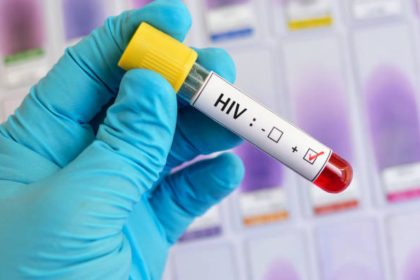Most of the bills are private member bills from individual MPs and senators, thus placing them at a significant disadvantage in Parliament’s priority system.
More than a dozen health-related bills aimed at improving Kenya’s healthcare delivery remain trapped in legislative limbo, raising serious concerns about fragmented lawmaking and missed opportunities in achieving Universal Health Coverage.
The stalled legislation covers critical areas from maternal care to cancer treatment, with constitutional lawyer Charles Kanjama warning that the well-intentioned but uncoordinated efforts could undermine Kenya’s healthcare transformation goals.
The pending legislation includes:
- Community Health Services Bill 2022
- E-Health Bill 2023
- Multiple versions of Cancer Prevention and Control amendments
- Health Amendment Bill variations
- Breastfeeding Mothers Bill 2024
- Medical Social Workers Bill 2024
- Tobacco Control Amendment Bill 2022
- Kenya Health Products and Technologies Regulatory Authority Bill 2022
- Human Tissue and Organ Transplantation Bill 2024
- Maternal, Newborn and Child Health Bill 2023
- Assisted Reproductive Technology Bill 2022
Most of the bills are private member bills introduced by individual MPs and senators, placing them at a significant disadvantage in Parliament’s priority system. “One of the challenges with private member bills is they deal with small sections of the sector,” Kanjama explained. “Sometimes, there might be two private member bills that are a bit inconsistent or even contradictory. They may need to be consolidated.”
The fragmented approach has created conflicts between similar bills, and others have sparked intense debate, particularly the Assisted Reproductive Technology Bill, which addresses unregulated areas like IVF and surrogacy. The Bill faces opposition from religious groups as Kenya’s Constitution stipulates that life begins at conception, creating complex implications for IVF procedures.
“If a couple has embryos created and then decides not to proceed with implantation, what happens?” Kanjama posed. “There is clearly a need for regulation.”
If a bill touches on healthcare facilities that impact counties, then it’s a matter concerning county governments
Some Kenya bills (like the Health Products Authority Bill) risk becoming “money bills” because they propose new institutions without checking if the Treasury can fund them. This creates extra legal steps and delays, and “It is often more economical to set up a framework within the existing line ministry,” argues Kanjama.
Health being a devolved function further complicates the process, considering “If a bill touches on healthcare facilities that impact counties, then it’s a matter concerning county governments,” Kanjama noted. “And both speakers must confirm this before it proceeds through Parliament.”
Every bill must complete a formal process:
- First Reading: Largely ceremonial introduction
- Second Reading: Debate begins, referral to departmental committee for public participation
- Committee Stage: Amendments debated and voted on
- Third Reading: Final approval or rejection by simple majority
Bills requiring both Houses must pass in identical form or undergo reconciliation. The President has 14 days to sign, object, or allow automatic passage.
“If the President has objections, Parliament can override them with a two-thirds majority, accept the changes, or let the bill fail,” Kanjama explained. “If the President neither acts nor returns the bill within 14 days, it automatically becomes law.”
Kenyans have a constitutional right to participate in lawmaking and “should look out for advertisements about bills, review contents, submit recommendations, and attend public sittings or town halls,” said Kanjama, as “Their informed views can influence the direction of these laws.”

Delaying these health bills slows progress toward better healthcare for all Kenyans. The bills fix urgent gaps in laws, rules, and services, and are vital for a stronger health system.
Delaying the Cancer Prevention and Control Amendments Bill, for instance, has serious consequences as it’s among the leading causes of death, yet early screening, timely diagnosis, treatment, and palliative care are scarce and unevenly distributed.
This bill is a game-changer for cancer care. It will streamline healthcare coordination, launch public awareness campaigns, expand affordable screening and treatment, and update outdated medical regulations.
The cost of delay is deadly. Current systems can’t handle Kenya’s cancer crisis. Patients face limited diagnostic services, unaffordable treatment options, and preventable suffering and death.
Holding up Kenya’s E-Health Bill keeps patient records disorganised, leading to duplicate tests and wrong diagnoses
The Community Health Services Bill, on the other hand, is crucial for Kenya’s healthcare, especially for Universal Health Coverage (UHC), which aims to formally recognise Community Health Workers (CHWs), provide training and fair pay to improve their work and strengthen primary care, especially in rural areas.
Without this bill, CHWs lack legal status, stable pay, and proper training; millions in rural areas get unreliable care, and UHC goals are weakened as CHWs are the frontline of healthcare.
Holding up Kenya’s E-Health Bill keeps patient records disorganised (leading to duplicate tests and wrong diagnoses), data security remains weak, while telemedicine can’t grow, hurting rural clinics and crowded hospitals.
The Maternal and Child Health Bill is critical for saving lives. Without it, Kenya’s high maternal and infant mortality rates will persist. The bill ensures skilled care during pregnancy, childbirth, and early childhood—services desperately lacking in rural and marginalised areas. Delays leave gaps in antenatal care, emergency obstetric services, and postnatal support, besides underinvestment in health infrastructure and workforce.
Delaying the Assisted Reproductive Technology (ART) Bill is crucial for setting guidelines on practices like in vitro fertilisation (IVF), surrogacy, and embryo storage. Delay means continued emotional, financial and legal vulnerability in seeking assisted reproductive services.
Scandals like the recent organ transplant exposé show how loopholes in the healthcare system are exploited
The Breastfeeding Mothers Bill guarantees paid breaks for nursing mothers at work, private lactation spaces in offices and stores, legal protection to breastfeed in public without shame, but its delay results in mothers weaning babies too early, babies missing critical nutrition and higher illness risks, besides workplace stigma pushing women out of jobs.
Delaying the Human Tissue and Organ Transplantation Bill worsens Kenya’s organ shortage and leaves the system open to abuse.
Patients wait years for transplants while the illegal organ trade thrives due to weak regulation. Scandals like the recent organ transplant exposé show how loopholes are exploited. The Bill would create a regulatory body to ensure ethical transplants and boost organ supply. Without it, vulnerable people stay at risk and illegal practices continue unchecked.
Medical social workers address psychosocial issues in mental health. But without this Bill, patients get inconsistent care, hospitals lack proper psychosocial support, and qualified workers leave the field due to lack of a legal framework for professional growth.
Delaying the Tobacco Control Amendment Bill stalls stronger regulations on tobacco advertising, packaging, public smoking, and access, especially targeting youth and vulnerable populations. Without these amendments, outdated tobacco laws leave loopholes that the industry exploits, driving up cancer, heart, and lung diseases. Kenya also lags behind global health standards like the WHO tobacco treaty.
Delaying the Kenya Health Products and Technologies Regulatory Authority Bill stalls the creation of a single body to oversee medical product safety and standards.
Currently, regulation is fragmented across various agencies, resulting in delays, inefficiencies, and the introduction of substandard or counterfeit products into the market. Without effective regulation, public trust suffers, innovation stagnates, and access to life-saving health technologies remains limited.
Holding up key health bills is hurting Kenya’s healthcare transition from NHIF to SHIF and putting UHC at risk, considering it is anchored on primary health care.




















